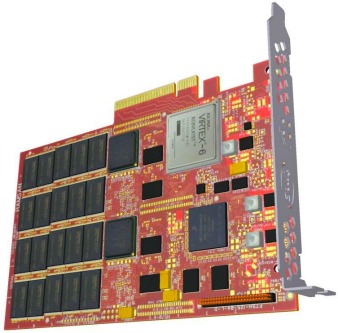Texas Memory Systems (TMS) announced that its RamSan PCIe storage systems, including RamSan-70 products, are now bootable storage devices.

The Texas Memory Systems RamSan70 PCIe flash card
Typically, all-flash arrays must use disk interfaces or RAID controllers to boot up. TMS is using a firmware feature that allows most common servers to load operating systems directly from a RamSan PCIe flash storage system.
Launched in 2011, the RamSan-70 has from 450GB to 900GB of capacity and features Toshiba's newest 32-nanometer single-level cell (SLC) NAND flash chips. It represents a 15% to 20% reduction in price-per-gigabyte over TMS's former PCIe card, the RamSan 10 and 20.
Last month, SanDisk also announced a PCIe flash card that could be configured as a bootable device. SanDisk's Lightning PCIe Solid State Accelerator (SSA) cards are being marketed for use in workstations and servers to provide an I/O performance boost for frequently used data and applications.
RamSan-70 products are capable of 1.5 million I/Os per second (IOPS), 2.5 GBps of bandwidth, and 30-60 microsecond latency. Bootability is available with the purchase of all new RamSan-70 PCIe storage systems, or as a firmware update with no hardware replacement necessary for RamSan-70 PCIe storage customers.
"Customers have been enjoying industry-leading performance from our PCIe Flash storage systems for over three years, and now with this firmware upgrade, we can allow large-scale customers to simplify and consolidate everything around flash," TMS President Dan Scheel stated in a news release.
The bootable PCIe cards support 64-bit x86-compatible computers that implement Unified Extensible Firmware Interface (UEFI) 2.1 or later. Supported operating systems include most Linux distributions. Windows and VMware support is expected by the end of the quarter, TMS said.





